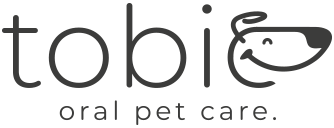Top-Rated Dog Dental Treats
If you're looking for a simple way to take care of your dog's oral health, dental chews are a great option. There are certain considerations to make before blindly trusting dog dental treats to deliver on their many purported benefits.
It can be tempting to use candy or gum as a substitute for brushing your teeth. Unfortunately, though, that encouraging assumption is false. Brushing and professional dental cleanings are the only ways to get rid of plaque and tartar, and we know how much your dog hates it when you pull out the brush.
It's a sad reality that three out of four canine companions may develop dental problems. Plaque, tartar, and debris buildup increase the likelihood of bacterial infection, which can spread to vital organs including the heart, liver, and kidneys. It is recommended that you brush your dog's teeth at least twice weekly. In any case, feel free to solicit our assistance by requesting some basic advice.
The Best Dental Treats
Given that your dog is likely to enjoy any dental treat, it can be tempting to buy whatever is cheapest. But not all dental treats are created equal, just like not all canine diets are. Since your dog's chewing movement is what does the "scrubbing," it's important to choose a chew that's the proper size for him.
Pick up a dog dental treat that is proportional to your pet's size and isn't too flimsy to be devoured in one sitting. Though larger dental treats are preferable, remember that you're rewarding your dog with more calories than usual every time you do so. If you want to keep them happy, treat them several times a week.
The Veterinary Oral Health Council's approval symbol is also a good indicator of quality. This group evaluates the claims made for dog chews and dog foods. Enzymes like lysozyme, lactoferrin, and lactoperoxidase are commonly included in high-quality dog treats, and they aid in the removal of plaque and tartar from the teeth and gums.
Brushing your pet's teeth twice a day and taking it to the doctor for checkups on a regular basis are the first and most important steps you can take to ensure the health of his or her mouth. In order to keep your dog's teeth healthy, it's important to take him to the vet often for cleanings and examinations. Without adequate care, your pet's teeth and gums are at risk for cavities and dental disease, both of which are uncomfortable and can have a negative influence on your pet's general health and quality of life.
Dental chews and treats are a terrific complement to your pet's oral health care routine when used in conjunction with regular brushing and dental treatment. Just like vitamins alone can't provide humans with everything they need, dental chews aren't enough to ensure your pet has a healthy mouth on its own.
It's excellent news that dental chews can bridge the gap between your pet's veterinary dental cleanings. Dental treats come in many forms; choose one that is well-suited to your pet's mouth and teeth. Treats for dogs of all ages and sizes are also widely available. If you're not sure which is best for your pet, talk to a vet.
Chewing on dental treats can help remove plaque and tartar from your dog's teeth. Dogs often chew on dental treats in a rhythmic fashion. Plaque on the teeth and gums can be reduced and eliminated with the help of this routine motion, which scrapes away food debris and bacteria while one chews. Scientific research has found that canine mouths are healthier when their canine companions engage in frequent chewing behavior.
A dog's breath can benefit from dental snacks that contain breath mints. If your dog has persistent bad breath, sometimes known as "doggy breath," it's likely that they have dental problems. Dog treats are great for their health, but they should never replace a comprehensive dental care plan for your pet.
Should you spend your money on dog dental treats? In a nutshell, the answer is yes! To ensure your dog's oral health, talk to your vet about a strategy and see whether regular dental treats may assist as they have been known to be an effective measure to prevent many dental problems within dogs. They won't hurt most dogs, however dogs with severe tooth decay or gum disease may experience irritation. Similar to human dental hygiene, keeping up with your pet's teeth and gums is best accomplished by routine brushing and examinations. Visit our online catalog and make sure your dog's dental health is looked out for.
